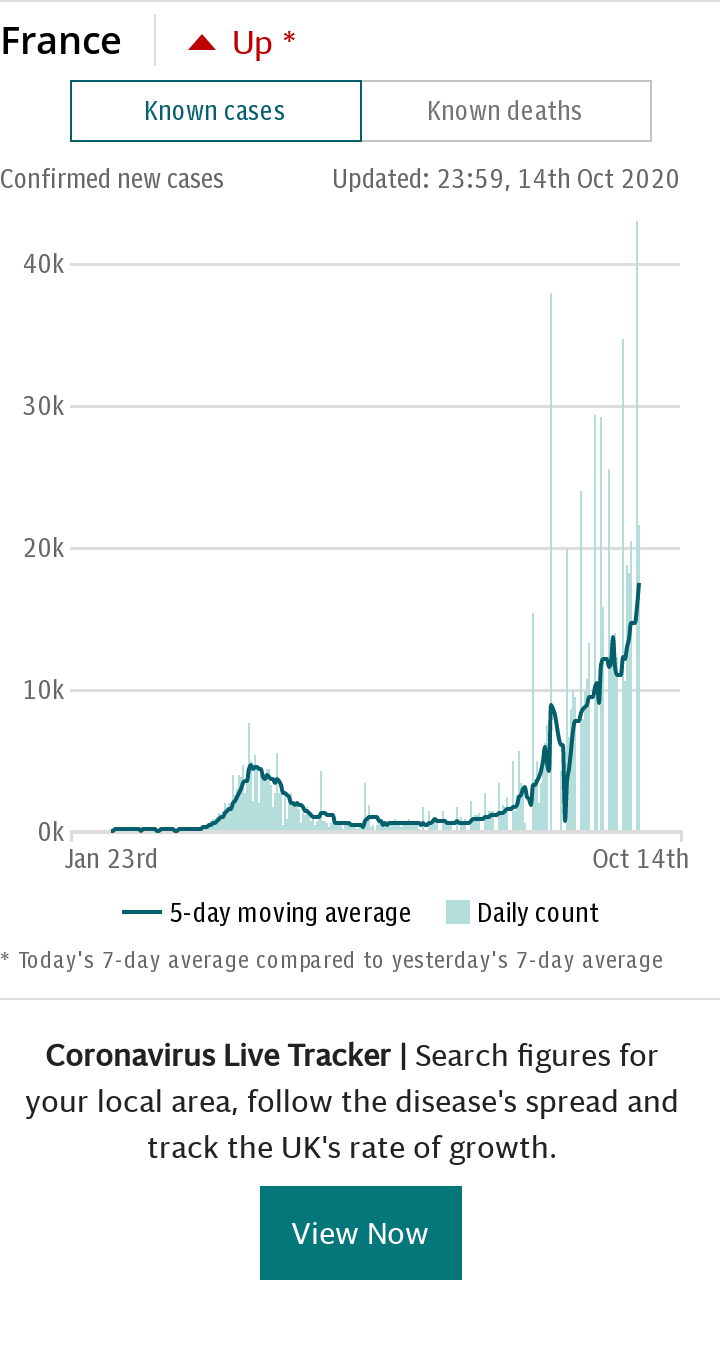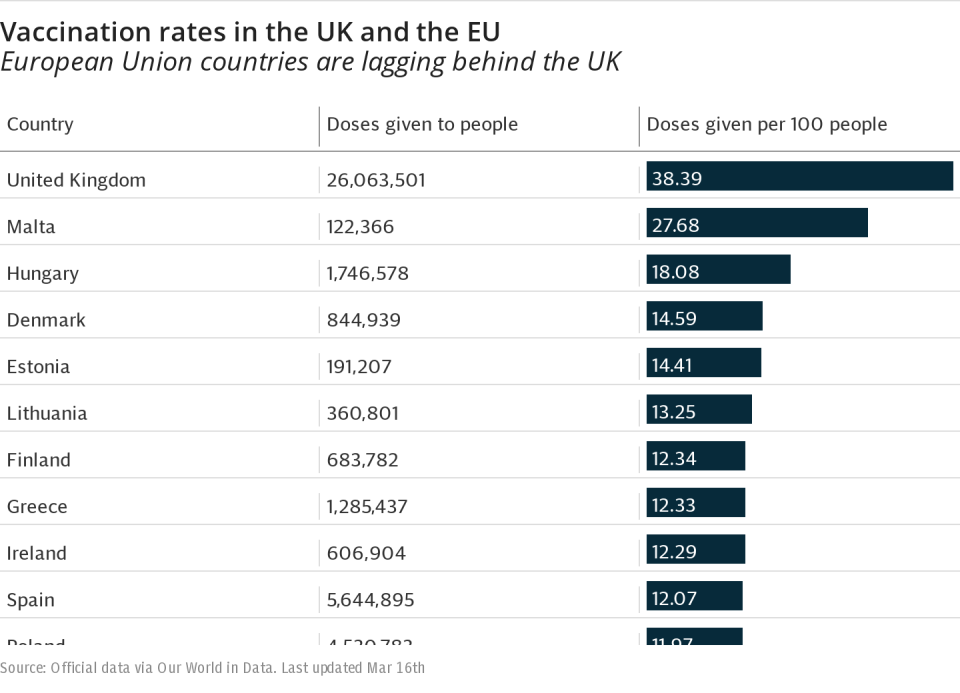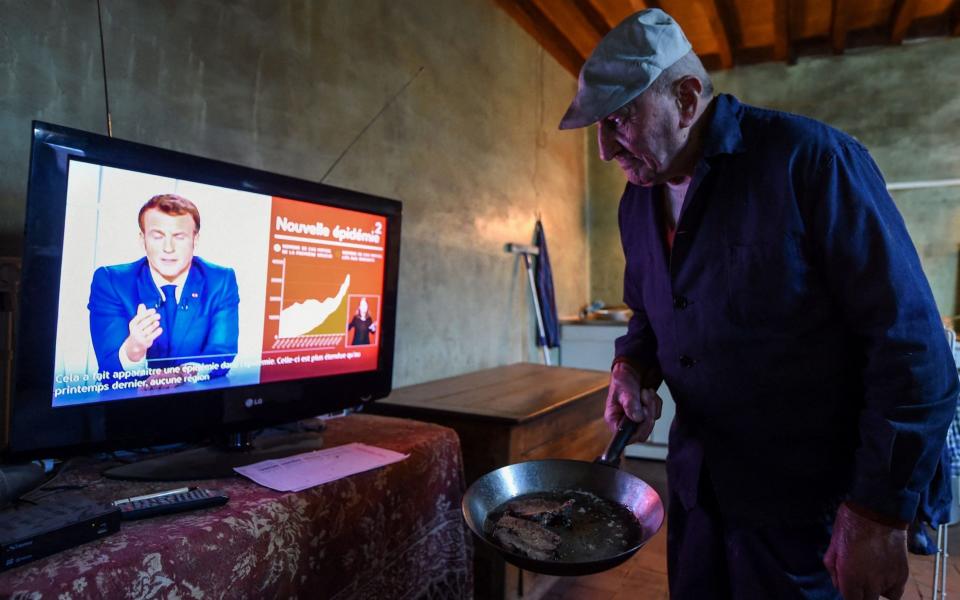Emmanuel Macron announces strict new coronavirus lockdown measures in televised address

- Oops!Something went wrong.Please try again later.
- Oops!Something went wrong.Please try again later.

Emmanuel Macron has announced strict new month-long measures including closing schools for three weeks, abandoning his efforts to keep France out of a third coronavirus lockdown.
The French president had ignored the pleas of his scientific advisors to close up the country in January but the spread of the contagious British variant and spiking infections forced him into a U-turn.
"We will lose control if we do not move now," he said in a televised address.
Non-essential shops will be closed and travel more than 10km from home is forbidden, unless there is a good reason. Travel between French regions is banned from April 5. People must work from home if they can and a 7pm curfew will stay in place, as Mr Macron extended measures in some French regions to the whole country.
Mr Macron had hoped to pursue a “third way” of fighting coronavirus without ordering people to stay at home and keeping the economy as open as possible.
In February it had appeared that Mr Macron’s gamble had paid off with cases flatlining under a curfew but with shops and schools open.
He was forced to act after daily coronavirus cases doubled to about 40,000 and hospitals in infection hotspots like Paris were swamped. 44 percent of people in intensive care with Covid were below 65, he said.

On Wednesday night, in a primetime television address, Mr Macron defended his decision to keep France out of lockdown. He insisted that every day the country was open was a day gained in the fightback for economic recovery.
He said that unlike Germany or Italy, which were in their fourth lockdowns, France had enjoyed “precious days of freedom”.
"We have opted since the beginning of 2021 for a response that aimed to curb the epidemic without locking down," Mr Macron said.
“We have won precious days of freedom, weeks of education for our children, without ever losing control of the epidemic. I think it was the right thing to do."
France’s slow vaccination campaign and his refusal to lockdown earlier have put the French president under pressure from politicians and medical experts.
“We could have done better, we have made some mistakes, all of this is true," he said.

Mr Macron, a vocal supporter of the EU’s discredited vaccine procurement strategy, faces elections next year and far right leader Marine Le Pen is rising in the polls.
Ms Le Pen said: "The measures announced by Macron are the result of a vaccination Waterloo for which he does not take responsibility."
On Wednesday night, Pfizer accused the EU of hindering the vaccination effort.
EU rules introduced in February obliging the manufacturer to seek Brussels' approval before exporting jabs had caused "a significant administrative burden and some uncertainty", said Danny Hendrikse, the pharmaceutical giant's vice-president of global supply.
France has administered about 10.7m jabs, far fewer than the UK’s 30.9 million doses.
Mr Macron said France would step up its vaccinations and reassured people that all the jabs, including AstraZeneca, were safe and effective. He said vets would be drafted in to join the mass vaccination campaign.
"Thanks to vaccination, the end of the crisis is finally within reach," he said.

Mr Macron last reluctantly imposed tougher restrictions on March 20, closing non-essential shops and introducing travel restrictions, in Paris and other regions of the country. The rules, which allowed people to meet outside and schools to stay open, hit about a third of the population.
The French lockdown was announced as Britain introduces new rules from April 6 aimed at preventing new variants entering the UK. Lorry drivers, cabin crew and seasonal workers entering England will have to take a Covid test within 48 hours of arrival from April 6.
Despite the setback, the avidly pro-EU Mr Macron, who falsely claimed the Oxford University jab was quasi-ineffective in the over 65s in January, is still expected to beat the Eurosceptic Ms Le Pen in elections.
He is among the toughest of EU leaders on the ongoing row over vaccine supplies with Britain.
He supported Ursula von der Leyen’s calls for tough vaccine export rules aimed at the UK at a summit last week and vowed that Brussels would block any export of AstraZeneca until it made up shortfalls of millions of doses to the bloc.

It came as the head of the European Medicines Agency (EMA) said there was “no evidence” to support restricting the use of AstraZeneca in any population, after Germany suspended its use over blood clot fears.
The EU’s drugs regulator said that a causal link between unusual blood clots was “not proven but is possible” but added that the benefits of the jab outweigh the risks.
Emer Cooke, EMA executive director, said 62 cases of cerebral venous sinus thrombosis have been reviewed out of 9.2 million people in the European Economic Area.
There were no specific risk factors such as age or gender for the “very rare” blood clots, she said.
"According to the current scientific knowledge, there is no evidence that would support restricting the use of this vaccine in any population," she said.
The German medicines regulator reported 31 cases of a type of rare brain blood clot among the nearly 2.7 million people who received the AstraZeneca jab in the country. Some regions including Berlin have banned the jab for people under the age of 60.

